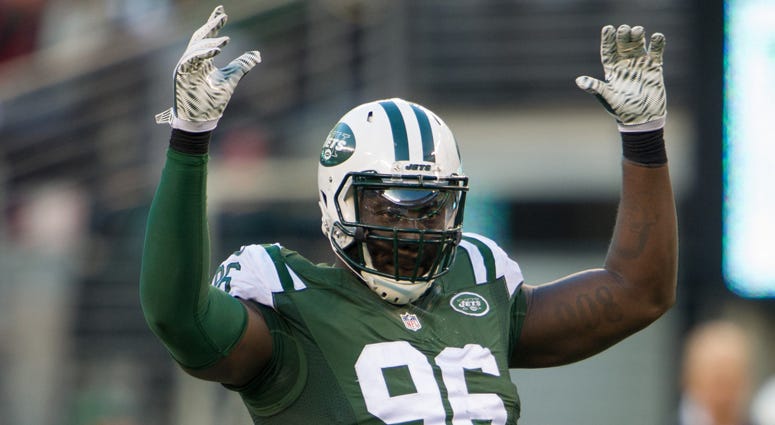
Someone once asked Calvin Hill about the secret behind his consistent rise to one of the Cowboys’ great all-purpose running backs.
The former first-round pick out of Yale proved no dummy in his answer. Hill said that while other players became content with the generous signing bonus and salary that came with their first contract, he was always looking toward and playing toward his next contract.
In other words, the prospect of an even bigger payday, not to mention its accompanying fame, kept him motivated.
Muhammad Wilkerson never learned that lesson. But perhaps Odell Beckham Jr. will, and won’t fall through the same rabbit hole if he lands even close to the sky-high, $20 million-per-year deal he’ll ask for before training camp starts.
MORE: Daniel Jeremiah On WFAN: Saquon Barkley Could Have A Giant Impact
For too many players, money, not injuries, has become their greatest downfall. They play hard their first few years. Then the big numbers roll in, and they decide it’s easier to sit on that big pile of money than to do all the little things that made them great.
Things like making it to meetings and practices on time or, in Wilkerson’s case, at all. Things like playing through the little hurts of a football season.
That’s Wilkerson’s story, a sad, almost tragic tale of a defensive end who could have gone down in history as an all-time great Jet, instead of an all-time great Jet salary thief. After showing monster potential throughout the five years of his rookie contract, a span that included his first Pro Bowl spot in 2015, he got paid. Five years, $86 million, with $37 million of that guaranteed.
He was that valuable at that point, thanks to the 36½ sacks he’d racked up over those years.
Then he vanished. The burgeoning leader of what should have been one of the NFL’s scariest pass rushes, even without Damon Harrison and Sheldon Richardson, turned into a loafer. He took plays off. He disappeared for lengthy stretches during games, letting Leonard Williams shoulder the pass-rushing load on his own.
The strains and bruises became excuses, and meetings became inconveniences. He let the guaranteed money take away not only motivation for the future, but any sense of team for the present. It didn’t seem to matter to him that all that money took millions in salary-cap space for a team desperate to move up from the lower reaches of the AFC East.
Eight sacks over the 28 games since the 2016 megadeal turned him into more of a problem than a star. And by the time it ended with a terminal benching for the last three games of 2017, he wasn’t worth a nickel, much less the $16.8 million an injury would have guaranteed him for 2018. Not to his linemates, the rest of the defense, coach Todd Bowles, general manager Mike Maccagnan or owners Chris and Woody Johnson.
Sad.
Now go to the other side of MetLife Stadium, where Beckham dresses. He, too, showed big-money value in the three years that preceded the broken ankle that ended his 2017 season in Week 4. But given his immaturity in handling matters on and off the field, one wonders if all that supreme talent would go to waste if the Giants do transform the $8.4 million option on his fifth year into a quarterback-like windfall.
Beckham’s teammates marvel at his work ethic during practice. But money, as seen in Wilkerson’s case, has a funny way of changing people.
Beckham should take that to heart.
Giants general manager Dave Gettleman will certainly think about it long and hard before he backs up the Brinks truck.
The case of Mo Wilkerson -- Pro Bowler turned pro flopper -- will cast a long, cautionary shadow.

 USA TODAY Images
USA TODAY Images